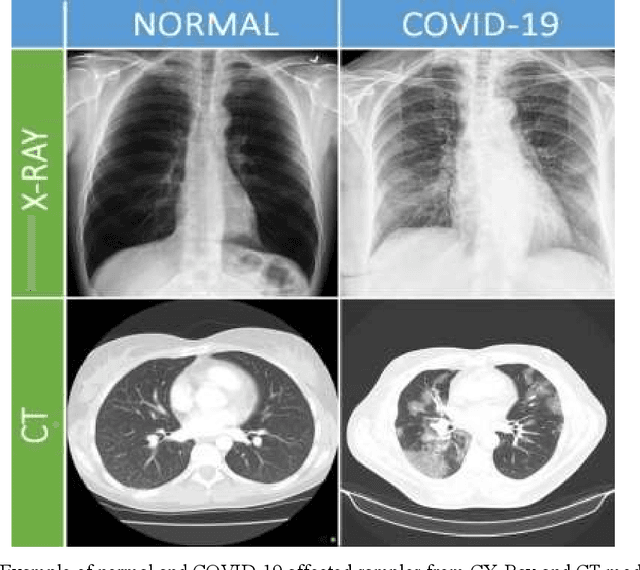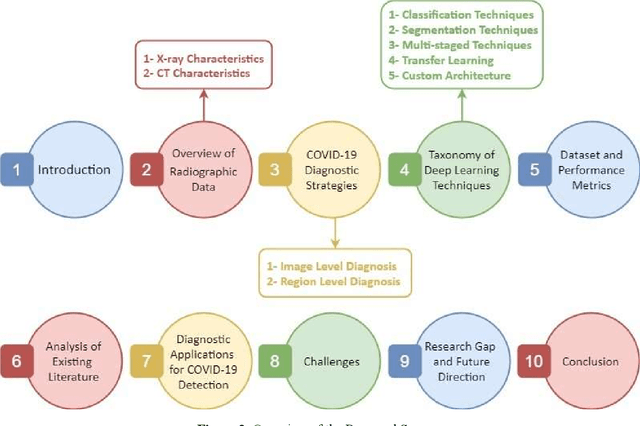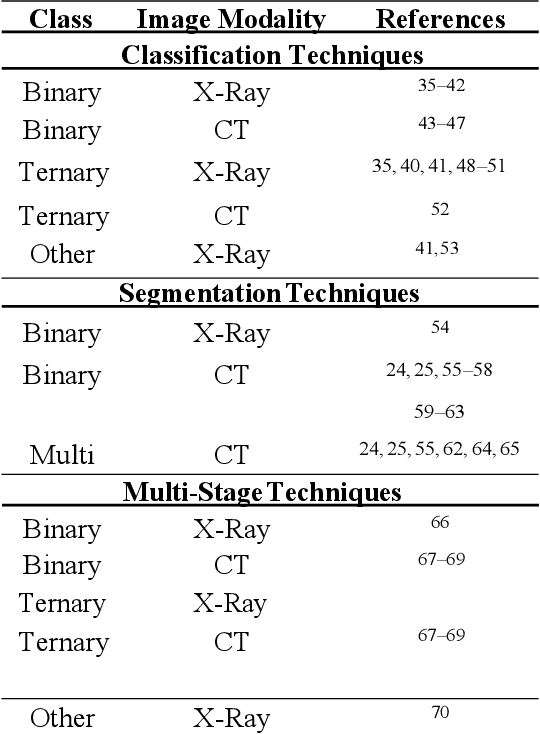A Survey of Deep Learning Techniques for the Analysis of COVID-19 and their usability for Detecting Omicron
Paper and Code
Feb 13, 2022



The Coronavirus (COVID-19) outbreak in December 2019 has become an ongoing threat to humans worldwide, creating a health crisis that infected millions of lives, as well as devastating the global economy. Deep learning (DL) techniques have proved helpful in analysis and delineation of infectious regions in radiological images in a timely manner. This paper makes an in-depth survey of DL techniques and draws a taxonomy based on diagnostic strategies and learning approaches. DL techniques are systematically categorized into classification, segmentation, and multi-stage approaches for COVID-19 diagnosis at image and region level analysis. Each category includes pre-trained and custom-made Convolutional Neural Network architectures for detecting COVID-19 infection in radiographic imaging modalities; X-Ray, and Computer Tomography (CT). Furthermore, a discussion is made on challenges in developing diagnostic techniques in pandemic, cross-platform interoperability, and examining imaging modality, in addition to reviewing methodologies and performance measures used in these techniques. This survey provides an insight into promising areas of research in DL for analyzing radiographic images and thus, may further accelerate the research in designing of customized DL based diagnostic tools for effectively dealing with new variants of COVID-19 and emerging challenges.
 Add to Chrome
Add to Chrome Add to Firefox
Add to Firefox Add to Edge
Add to Edge